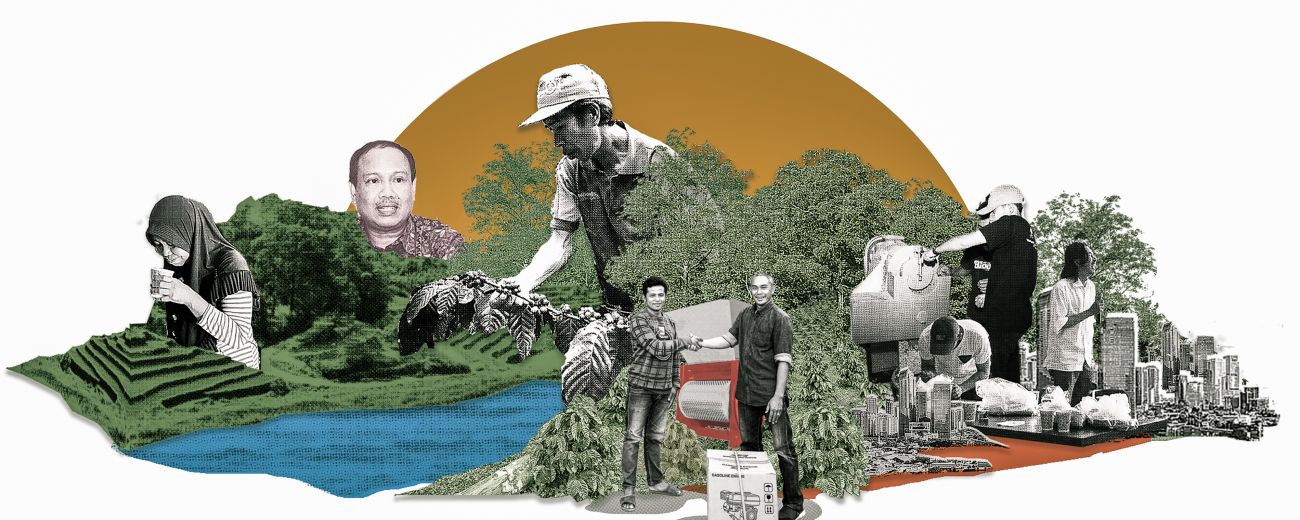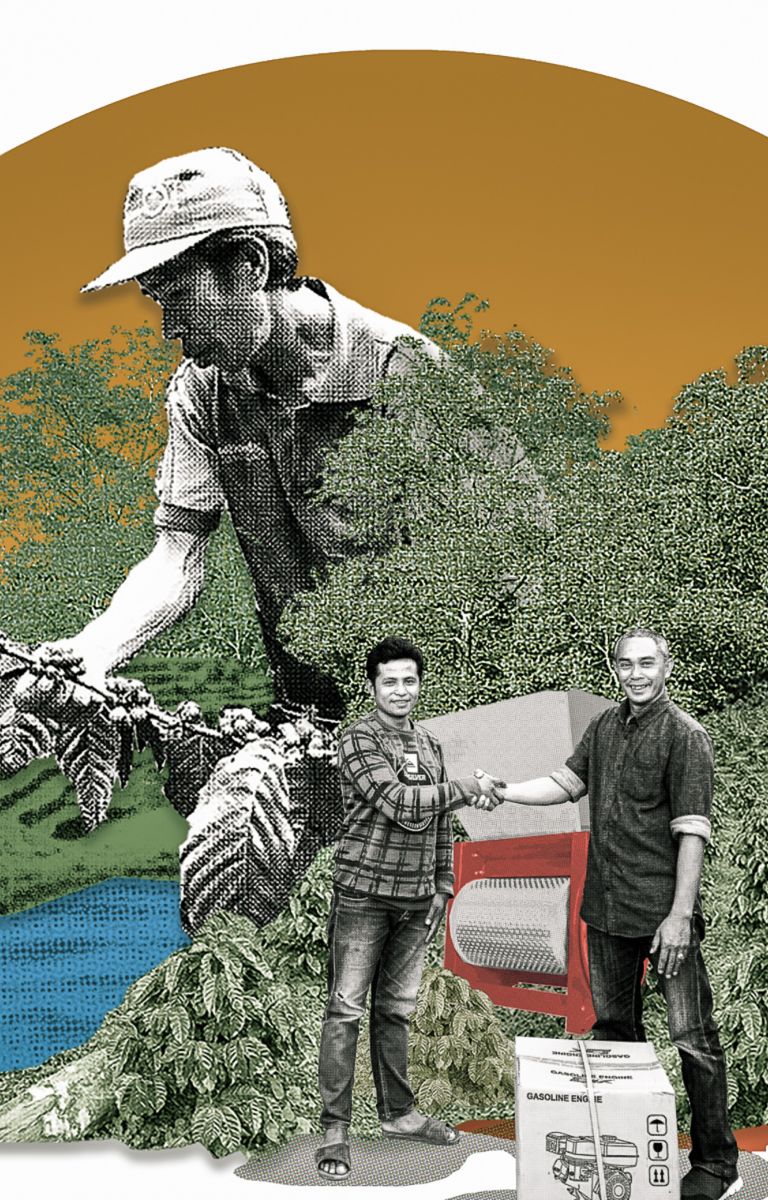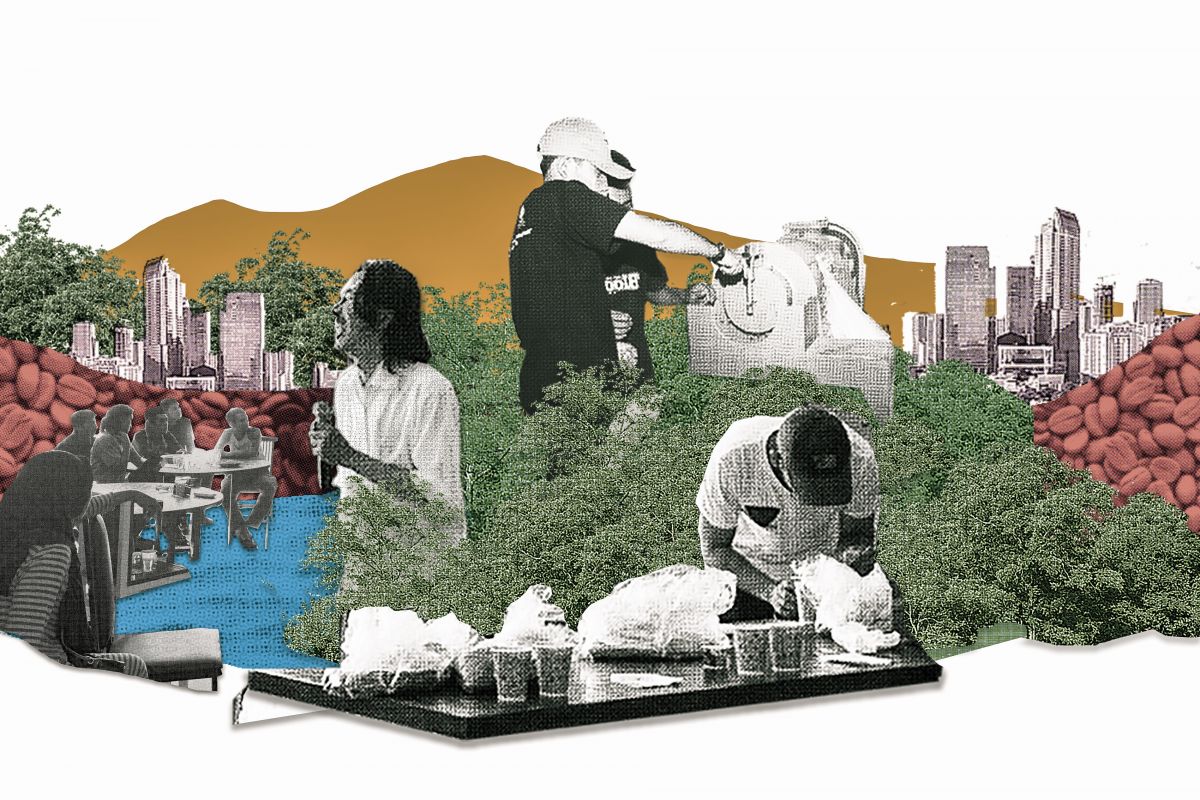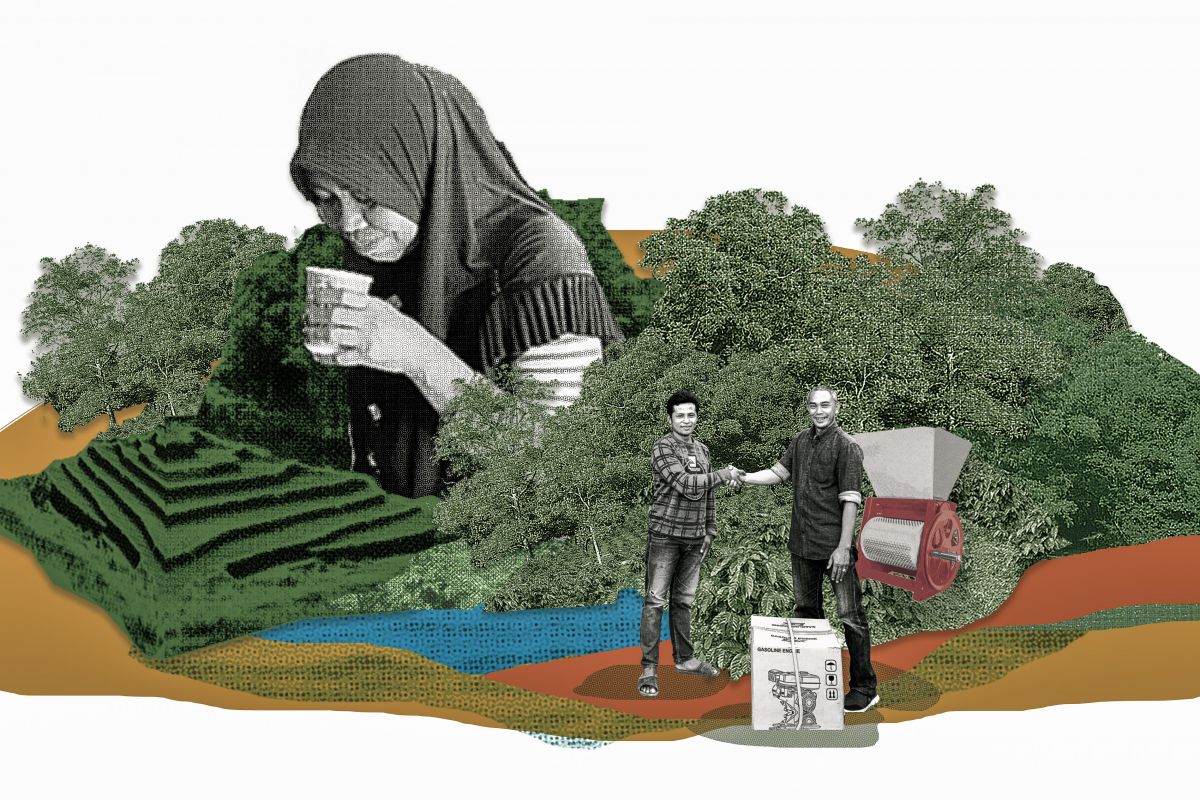

In the forests of Indonesia’s South Sulawesi, where small-scale farmers often struggle to make a living, 38-year-old Marni has been thriving. She has a new tin roof on her house and enough money to send her daughter to university and her sister to teachers college. Marni is reaping the rewards of a decision she made years earlier to develop a coffee farm in harmony with the forest.
“Now I am grateful that I can earn more money and even expand my farm,” she says at her village in Bantaeng District in the island’s southern tip.
As with countless households in Indonesia, the COVID-19 pandemic has harmed Marni's livelihood. But the sustainable and profitable nature of her enterprise means she has weathered the financial shocks better than many others some.
Marni’s success is the culmination of a decade of RECOFTC’s work in the remote district of South Sulawesi. Its aim is to build community forestry for local people living in and around forests.
RECOFTC has been at the heart of collaborative efforts to strengthen the livelihoods of impoverished, Indigenous Peoples and other marginalized groups. These communities have been given a greater mandate by the government to manage the forest landscapes they depend on for survival.
Over the years, RECOFTC has built partnerships with local communities, forestry and agricultural officials, university and civil society. Together, they have worked to obtain land permits for villagers, organize training in agroforestry and build small enterprises. These activities have encouraged villagers to shift away from traditional slash-and-burn agriculture that causes forest degradation and soil erosion.
Expanding collaboration
In 2020, RECOFTC and the Indonesian government signed a memorandum of understanding to expand this collaboration for another five years. Under the agreement, RECOFTC will continue to build up the knowledge, skills and capacities of stakeholders.
It will also develop cooperatives among communities across Indonesia modelled on a successful farmers’ group that RECOFTC helped establish in South Sulawesi. With more than 90 members, including Marni, the Akar Tani Cooperative helps coffee farmers secure better access to markets and higher prices for their beans.
Since joining the cooperative, Marni has learned improved harvesting and processing techniques, such as picking only ripe, red berries and sorting them properly. She also knows how to care for her arabica coffee plants and the 3 hectares of land on which they grow.
 “We know we have to plant more trees to shade the coffee plants, otherwise they won’t survive,” she says. “So we planted jackfruit, mahogany and many other trees.”
“We know we have to plant more trees to shade the coffee plants, otherwise they won’t survive,” she says. “So we planted jackfruit, mahogany and many other trees.”
Improving her enterprise has brought rewards. Before the pandemic depressed prices, Marni was selling 1 kilogram of her coffee beans for 120,000 Indonesian rupiah (US$8.50), compared with 20,000 rupiah (US$1.40) when she first started 10 years ago.
Agroforestry critical for success
Community forestry has successfully spread in Southeast Asia over the last 10 years. Between 2010 and 2020, the total area of community forestry more than doubled, to 13.8 million hectares. And ASEAN countries are committed to further build on this.
This success is largely a result of concerted efforts by RECOFTC and others. They have worked together to undertake research, build capacity and help governments develop new laws that give communities greater management of landscapes.
As part of these efforts, RECOFTC developed a manual in 2020 to help officials, extension workers and practitioners deliver knowledge and skills to farmers wanting to develop agroforestry. Agroforestry allows coffee and other crops to grow within and around forest areas, providing sustainable livelihoods for communities. The system also supports biodiversity because forests are left standing and thus sequester carbon from the atmosphere.
A decade-long partnership between Switzerland and ASEAN focused on producing new policy documents and guidelines to help governments introduce community forestry and address climate change.
Dian Sukmajaya is a senior officer in the Food, Agriculture and Forestry Division of the ASEAN Secretariat. He credits the Swiss partnership with strengthening community forestry and advancing agroforestry more broadly in the region.
“The ASEAN guidelines for agroforestry development have been adopted by all countries, and some countries are now developing their national agroforestry road map,” says Sukmajaya.
Urgent and new challenges
But challenges remain for the region that has seen decades of forest destruction and degradation. When the Swiss partnership ended in 2020, RECOFTC surveyed stakeholders to determine how it could build on the success of the past 10 years.
Stakeholders said the most urgent priorities were helping communities adapt to climate change and increase food security. Growing the size and type of forest areas managed by communities was also critical, along with securing tenure rights for those people.
Yurdi Yasmi led the formation of the Swiss–ASEAN partnership while working at RECOFTC. He says that unlocking the potential of community forestry required governments to trust communities with tenure of the landscapes on which they worked. Governments also needed to give communities support and legal frameworks to build up their farms and other sustainable forest enterprises.
“If you open local communities to markets, they are very creative,” says Yasmi. “If you provide them with information on how to design products consistently, how to target specific markets or niche markets for certain products, then they will benefit. When you put money into the pockets of the local community, they will be happy. They will conserve your forest.”
Coping with COVID-19
Many forest communities were able to cope with the initial financial shocks of COVID-19. Research undertaken by RECOFTC in 2020 showed communities were hit hard by travel restrictions, and by lower prices and fewer buyers for their forest products. But personal savings from their enterprises provided a safety net.
 In Indonesia, communities surveyed for the research said they were grateful they were able to use the forests during the pandemic. They continued agroforestry and relied on forests for water, food and building materials for personal use or for sale. These resources provided a buffer against the impacts of lockdown.
In Indonesia, communities surveyed for the research said they were grateful they were able to use the forests during the pandemic. They continued agroforestry and relied on forests for water, food and building materials for personal use or for sale. These resources provided a buffer against the impacts of lockdown.
Community members said they want assistance to buy machinery to improve their enterprises and to become even more resilient to national crises in the future.
In South Sulawesi, coffee farmer Marni is among those determined to improve on her success secured that she secured before the pandemic and to build back better.
“It’s not going to affect me,” Marni says of the pandemic.
The Akar Tani cooperative, for the moment, is buying less. But Marni has found other buyers and even coffee shops willing to buy from her directly. She is washing and drying the beans using simple machinery on her farm. And she has even tried roasting them in a kitchen wok.

